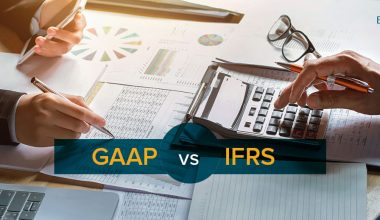While there are countless degrees and certifications available today, the accounting certifications listed below are among the most in-demand and lucrative; keep reading to learn more about how to get them, potential employers who hire them, and more.
Accounting Certification
If a career in accounting or finance interests you, you may be wondering what certifications are required to practice the field. How helpful are they? Regarding your professional goals, how do they connect?
Certifications demonstrate to prospective employers that you possess a specific level of knowledge or experience in your field; however, they are not necessarily required. They may provide you with the tools you need to launch a career in accounting, explore other areas of industrial specialty, or pursue other professional goals.
#1. Certificate of Achievement in Accounting Assistant/Bookkeeper in Level I.
Generally, students completing the Bachelor of Accounting Assistant/Bookkeeper, Level I, Certificate of Achievement program will have the skills necessary to enter the field with a solid grasp of generally accepted accounting principles (GAAP). Students who complete the Level I Certificate of Achievement in Accounting Assistant/Bookkeeper will be well-prepared for a wide range of careers. Students have the opportunity to work at:
1. A part-time, entry-level position as an accounting assistant or bookkeeper for small businesses or partnerships, working under supervision.
2. Working as an entry-level accounting clerk or data processor for smaller to medium-sized businesses, partnerships, or corporations, under supervision.
#2. CPA (certified public accountant)
Nearly everyone knows what a certified public accountant (CPA) is. To achieve their financial goals, individuals and businesses can rely on the advice of certified public accountants.
They are also a good resource for guidance with accounting and tax issues. This is a great strategy to employ if you wish to elevate your reputation as an accountant.
#3. Certified Expert in Financial and Managerial Accounting
Since accounting is the language of business, having a deep understanding of it is essential for anyone leading or making decisions in development finance institutions. You will become fluent in this language after completing this course.
What are their services?
- A multimedia online course with video lectures, scripts in PDF format, examples, exercises, case studies, and opportunities for self-assessment
- A place where you and your fellow students, instructors, and members of the FSDF e-Campus staff can talk about anything and everything relating to the course.
- Tailored assistance from the e-Campus staff
- After finishing the course, you have the option to get either a certificate from the Frankfurt School or a confirmation of your completion.
#4. CFA (Chartered Financial Analyst)
The CFA designation is a credential with a financial focus. This one is quite relevant if you’re considering a career in finance or financial planning. Portfolio management, investments, economics, and professional ethics are examples of CFA responsibilities.
What steps must you take to become a CFA?
The CFA designation requires a bachelor’s degree and four years of work experience. The related test includes three levels and lasts 18 hours in total. While it is possible to complete the tests in as little as 18 months, most students require more than two years.
#5. CMA (Chartered Management Accountant)
In contrast to the CPA, this certification focuses on management-related accounting topics as well as finance. The Institute of Management Accountants (IMA) offers a CMA degree program in management accounting.
Becoming a trained management accountant, like becoming a CPA, helps you demonstrate your knowledge and talents. CMAs, on the other hand, basically advise professionals when a CPA engages in public accounting.
This provides a strong foundation for anyone interested in leadership or who wants to develop their strategic and decision-making skills.
Accounting Certification Programs
A certificate from an accredited educational institution is proof that the bearer has met the requirements for entry into a specific field. It provides abilities that are in great demand in today’s global workforce but usually take less time to achieve than a degree program.
To begin with, what exactly is an accounting certificate? Students enrolled in this all-inclusive program will have the opportunity to become well-versed in accounting principles and technicalities while also enhancing their mathematical and communication abilities. A comprehensive overview of various computerized accounting systems and software is typically part of the curriculum in such a degree, along with elements of mathematics, computer and word processing, business, and technology.
Certified public accountants (CPAs), small enterprises, large corporations, and independent contractors are just a few of the many possible employers of graduates with a Certificate in Accounting.
#1. Certificate in Advanced Valuation
Valuation is essential for any number-crunching endeavor, whether you’re managing a portfolio, getting ready for a merger or acquisition, or just salivating over the latest tech wunderkind’s dollar amount. Among the foremost figures in the industry, Professor Aswath Damodaran teaches Advanced Valuation to analysts, CFOs, and portfolio managers who want to learn more about valuation and gain the confidence to make sound financial decisions.
Students will get the skills to assess the worth of any company, big or small, public or private, in a developed or developing market through a combination of video lectures, live online meetups, and a practical valuation assignment. Additionally, they will be competent in valuing companies based on revenue, book value, profitability, or any number of other comparable pricing metrics.
If you’re a student interested in improving your accounting skills, this course comes with a free bonus.
#2. Certified Expert in Financial and Managerial Accounting
A deep understanding of accounting is essential for effectively managing or making decisions within development finance organizations. Accounting is the language of business. You will become fluent in this language after completing this course.
#3. Certificate in Small Business Accounting
Business administration is the management of small, medium, and large businesses. The goal is to help students develop the mindset, set of abilities, and body of information necessary to succeed in a variety of business careers. You will learn the fundamentals of general business in this program. An education in this field will equip its students with the tools they need to become successful leaders and members of teams, as well as strong communicators and motivators.
By the end of the course, students will have learned the fundamentals of accounting software and will be prepared to work as an entry-level bookkeeper or accounting clerk.
#4. Accounting, Certificate program
Bay College’s Accounting Certificate Program equips students with the information and abilities necessary to work as accounting clerks or bookkeepers, including business, accounting, and computer literacy. Completing an Associate of Applied Science in Accounting program may give students even more job opportunities.
Anyone looking for a foundational accounting degree or a stepping stone to a career in the field can find what they need in Bay College’s Accounting Certificate Program. Students can build marketable accounting skills and broaden their skill sets by completing the certificate in addition to another business degree.
Online Accounting Certification Programs
Those looking to change careers or improve their skill set can benefit from an undergraduate certificate in accounting, which provides a foundational understanding of the field. For individuals looking to specialize or develop in their careers, graduate certificates offer a more in-depth education. For students juggling schoolwork with other obligations, the time and flexibility offered by online courses make them an ideal choice.
You are making a great decision if you want to advance in your current position or investigate other fields. Read this useful guide to acquiring a certificate in accounting online to discover course specifics, career prospects, and more.
TIP: Because of its flexibility and accessibility, online learning has grown in popularity in recent years. Earning an accounting credential online corresponds nicely to the structured, quantitative style of the study. When selecting an online program, evaluate if it is solely online or a hybrid that mixes online and in-person education. Some people may prefer the entire flexibility of online learning, while others may benefit from face-to-face encounters on occasion. Furthermore, it is worth contemplating whether the courses are offered via online or offline learning by the instructors. The offline presentation allows you to watch recorded lectures and complete assignments at your leisure, whereas online learning requires you to log in at specific times. The best option is dependent on your learning style, timetable, and personal responsibilities.
#1. Accounting for Investment and Managerial Decision-Making Online Certificate Course
Create a set of tools for financial and managerial accounting to boost efficiency and productivity.
These days, no powerful manager can succeed without a solid grounding in accounting and financial concepts and practices. Earn a certificate in eight weeks from LSE’s Accounting for Investment and Management Decision-Making online course, and you’ll learn to use financial and management accounting to improve your company’s performance and decision-making. You will enhance your skills in statement analysis and learn to convey financial outcomes to important stakeholders in a company by acquiring a solid foundation in accounting concepts.
Learn how to delegate decision-making power to your team and how insights into your company’s expenses, efficiencies, and revenues can help develop a culture of persistent improvement with the direction of renowned LSE instructors. Finally, you’ll examine the role of planning, budgeting, and performance goals, as well as how to create reward, monitoring, and feedback systems to help you achieve them.
#2. CIMA Certificate in Business Accounting
The Certificate in Business Accounting (Cert BA) serves as an introductory program for individuals with limited experience in the field of accounting. The course will cover the basics of business economics, financial accounting, management accounting, and ethical considerations in commercial activity. The typical duration for students to complete the qualification is approximately 6 to 12 months. This program comprises four subjects that are evaluated through computer-based exams.
Upon successful completion of this certification, individuals will be eligible for employment in positions such as account clerks or administrative roles. At this point, you can proceed to pursue the CIMA Professional qualification, starting with the CIMA Operational level.
The CIMA Certificate in Business Accounting at Edge Business School provides students with a comprehensive understanding of essential accounting, management, and business principles. This program prepares individuals for a successful career in the business and finance industries. This program will enhance your abilities in financial reporting, performance forecasting, data analysis, and other relevant areas.
#3. Online Certificate: Accounting and Bookkeeping Certification—4 Course Bundle
This online course bundle provides thorough guidance on financial management and offers training in popular accounting software such as Sage 50 and QuickBooks.
Finance and Accounting Certification
Professional certifications can enhance your competitiveness in the finance industry by improving your reputation, skillset, and career prospects. Various certification programs are available, each with different focuses, durations, prerequisites, and costs. However, the time and financial investment required can yield significant returns based on your career objectives. Employers highly value the following certifications in finance and accounting, and they can improve your candidacy.
#1. CFA (Chartered Financial Analyst)
Consider acquiring a CFA certification if you want to work as a portfolio manager or in investment analysis. The emphasis is on ethical and professional standards, economics, financial reporting and analysis, and quantitative methodologies. The certification needs three levels of completion and can take up to four years to accomplish. The pass rate for the most sought-after qualifications is less than 20%.
#2. FMVA (Financial Modeling and Valuation Analyst)
The FMVA is a new certification; nonetheless, it is widely popular. It is also less expensive than other types of certification. The emphasis is on how to develop financial models, business valuation methodologies, and use Excel for financial analysis, ratios, and company performance, with a total of 24 courses and around 100 hours of video teaching required.
#3. Chartered Global Management Accountant (CGMA)
The CGMA financial certification is a worldwide recognized accreditation for certified public accountants (CPAs) in industry and government. The achievement of this certification validates your skills in business strategy and management accounting. The Association of International Certified Professional Accountants (AICPA) and the Chartered Institute of Management Accountants (CIMA) award the certification.
#4. Chartered Alternative Investment Analyst (CAIA)
If you want to work in the asset management or hedge fund industries, the CAIA certification is one of the most well-known. The examination covers topics such as ethics, hedge funds, asset allocation, and risk management. This certification takes between 12 and 18 months to complete.
#5. CIA (Certified Internal Auditor)
This internationally recognized accreditation emphasizes knowledge in areas such as information technology, risk management, and control. The Institute of Internal Auditors (IIA) three-level program takes an average of 12 to 18 months to complete, though three years are acceptable. If you want to work as an internal auditor, especially in management, this is a good alternative.
#6. CFE (Certified Fraud Examiner)
If you want to work in anti-fraud activities, the CFE will recognize you as an expert in areas such as fraud prevention and deterrence, financial transactions and fraud schemes, law, and investigation. The exam consists of four two-hour portions, and you have 60 days from the first to finish all of them.
The decision to invest in your career—both time and money—is a significant one. Earning professional credentials in finance and accounting, on the other hand, will impress recruiters and expand your knowledge and skills. Speak with experienced talent professionals about upskilling your career or searching for open positions today!
What Certifications Should Accountants Have?
Certified Public Accountant (CPA)
A CPA is the most prevalent accounting credential and is necessary for many accounting jobs. It validates your abilities in forensic accounting, risk management, compliance, taxation, and other key accounting skills.
Is CMA Better Than CPA?
The CPA credential is well-known, and you can obtain it regardless of where you work in finance and accounting, whether in public or non-public accounting. The CMA, on the other hand, is only useful for people who wish to work and stay in business.
Which Is Harder CMA or CPA?
Still, the CMA exam has a comparatively low success rate, with around 45% passing the two portions collectively, compared to 50% or higher passing each section of the CPA exam. Candidates for the CMA have three years to pass both portions of the test.
Are Accounting Certificates Worth It?
Yes!
Obtaining an accounting qualification is worthwhile.
Accounting certificate programs can provide essential certificates that are quite versatile, which can lead to greater employment prospects, especially as accountants are required in every business and industry.
Is Accounting Worth It Without CPA?
Many people with accounting degrees continue to operate in the profession without the CPA designation. The biggest difference may be in salary; however, many accountants do the same work as CPAs in the private sector.
Can You Work at the Big 4 Without a CPA?
Although a large number of workers at these companies hold CPA certification, some positions do not necessitate it. A certified public accountant (CPA) license isn’t always required, especially for those working in advisory, technological, or consulting capacities.
What Is the Difference Between a CPA and a Bookkeeper?
Bookkeepers are professionals at handling day-to-day financial issues such as wages and expenses. CPAs, on the other hand, focus on taxes and strategic planning. With that in mind, a CPA is the best option if you’re looking for someone to basically assist you with your taxes or provide financial advisory services.
Accounting Certifications: The Bottom Line
Accounting certifications, such as CPA, CFE, or CIA, provide you with specialized information that can help you advance in your job.
With one of these credentials under your belt, the job market is your oyster. You can choose from a plethora of jobs in public or private sector finance, investigation, and more.
- CERTIFIED MANAGEMENT ACCOUNTANT: How To Become a CMA
- How To Become a Real Estate Developer: Ultimate Guide
- WHAT IS A CMA IN REAL ESTATE: What It Is & How to Create One
- Automotive Engineering: Meaning, Duties and Salary






